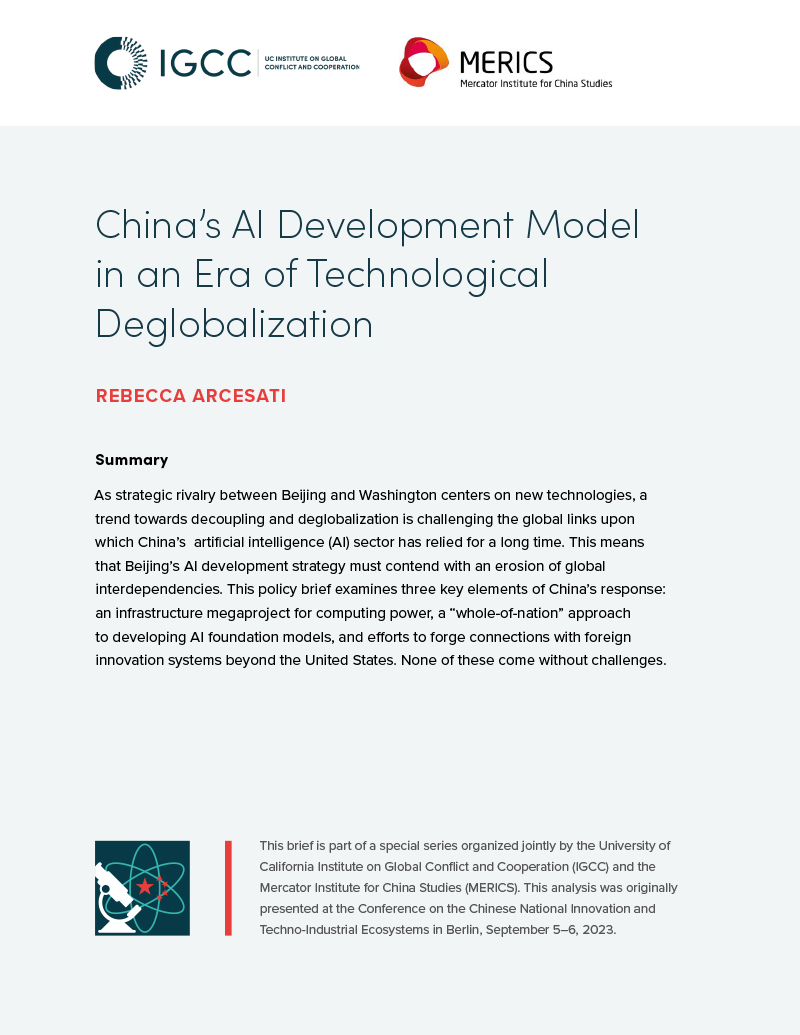China’s AI Development Model in an Era of Technological Deglobalization

In this policy brief, Rebecca Arcesati examines three key elements of China’s response to the recent erosion of global interdependencies, a trend that poses challenges to Beijing’s artificial intelligence (AI) development strategy, which has historically relied on strong global links.
DownloadAs strategic rivalry between Beijing and Washington centers on new technologies, a trend towards decoupling and deglobalization is challenging the global links upon which China’s artificial intelligence (AI) sector has relied for a long time. This means that Beijing’s AI development strategy must contend with an erosion of global interdependencies. This policy brief from Rebecca Arcesati, a lead analyst at MERICS, examines three key elements of China’s response: an infrastructure megaproject for computing power, a “whole-of-nation” approach to developing AI foundation models, and efforts to forge connections with foreign innovation systems beyond the United States. None of these come without challenges.
This brief is part of a special series organized jointly by the University of California Institute on Global Conflict and Cooperation (IGCC) and the Mercator Institute for China Studies (MERICS). This analysis was originally presented at the Conference on the Chinese National Innovation and Techno-Industrial Ecosystems in Berlin, September 5–6, 2023.
Thumbnail credit: Stimson